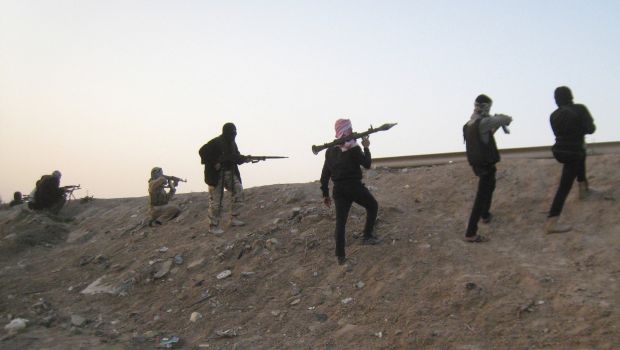Iraq’s leaders have completely missed their chance to take the Iraqi state towards unity, at least for the foreseeable future. Why? It’s a valid question. They have certainly had enough time. It has been eight years since a permanent constitution was ratified, a permanent parliament was elected, and a permanent government was convened. However, all of these institutions have failed to provide even the illusion of a unified state.
Where does the malady lie? Before the overthrow of Saddam Hussein, all of us, even the forces of political Islam, were united in opposition to his rule. The people of Iraq were ready for a real democratic alternative to his terrible dictatorship, and an end to a long history of pain, tragedy, and war. This promise was underscored by the arrival of US forces in 2003, but what has happened since bears no resemblance to democracy.
The governing council established by the Americans in 2004 was based on the belief that, because Iraq was composed of Shi’ites, Sunnis and Kurds, splitting the political cake according to population ratios would serve as a guarantor against exclusion and instability. The Americans saw these rifts from a social perspective, but they represent more of a political problem. The process of marginalization began with the establishment of the state of Iraq in the 1920s, and is far more political in nature than it is nationalistic or sectarian, though the latter movements have certainly played their part.
Under the Iraqi monarchy, governments were opposed to the Iraqi national movement, which transcended sectarian and nationalist loyalties, including those of the Kurds. In the post-monarchy, pre-Saddam era, the conflict centered around the nationalists (Ba’athists and Nasserites) on one hand, and leftists and liberals on the other. Now place into this context the Kurdish movement, whose slogan was “Democracy for Iraq, Autonomy for Kurdistan.”
Before Saddam’s fall, opposition forces believed Iraqi citizenship was based on a unifying national identity which transcended nationality, religion and sect, in stark contrast to Saddam’s totalitarian regime which welcomed only Ba’athists.
By April of 2003, Saddam’s Ba’athist rule was revealed as the house of cards it had always been. Over the course of just two days, all civil and military institutions collapsed and Saddam fled Baghdad and hid in a hole. His dictatorship vanished without a trace, and official papers, such as personnel records, were burned or looted. But the current Iraqi state does not provide an alternative. It is not built upon shared indigenous identity, but is derived from secondary loyalties, be they doctrinal, political, or nationalistic. These identities have fragmented the nation over the past eight years, obstructing the creation of a real Iraqi state.
Democracy can only be built by the democratically minded. Civilization can only be built by civilian hands. There has not been one democratically-minded civilian among those who have come to power in the last eight years. Instead, power has been held by the advocates of political Islam, Shi’ite and Sunni alike, who have been battling for political dominance for 1400 years.
Despite US efforts to form a representative state built on Shi’ite, Sunni and Kurdish accord, the illusion was short-lived, and was soon replaced by old rivalries. The representatives of these factions have not succeeded in agreeing on a comprehensive, permanent constitution geared towards establishing the promised civil democratic state. The constitution contains fatal flaws with regards state-building institutions. There was a temporary agreement to amend the constitution and repair its shortcomings, such as Article 142, which was swiftly amended. Indeed, a committee formed by the first Council of Representatives proposed amendments to 50 articles, but neither that council nor the current council, whose term expires in the next few weeks, have managed to pass a thing.
The failure to amend Iraq’s incomplete and contradictory constitution has ensured that it is doomed to fail. The government now operates a system of legislative consensus between dominant political forces, who divide up resources and government jobs among themselves. The entire hierarchy of every ministry and every institution of government has been politicized in this manner.
This system has effectively established a network of partisan, sectarian or nationalistic ‘cantons’, which ostensibly constitutes an ‘Iraqi state.’ But there is a large difference between a system of cantons and a nation. The status quo serves the interests of the financial and authoritarian elite, which is why the latter are so desperate to defend it. That is what is happening now: the leaders of the various cantons do not want established state institutions rocking the political boat and undermining their interests.
That is also why I am confident the current leadership is both unable and unwilling to create state institutions that would include leaders who are not part of the current political process: a civilian, democratic leadership that hails from outside the non-civilian, undemocratic ranks of political Islam.
The parliamentary elections on April 30 will not create this civilian leadership. But they may signal the likelihood of a civilian government within the next ten years.
The counterpoint to this piece can be read here.
